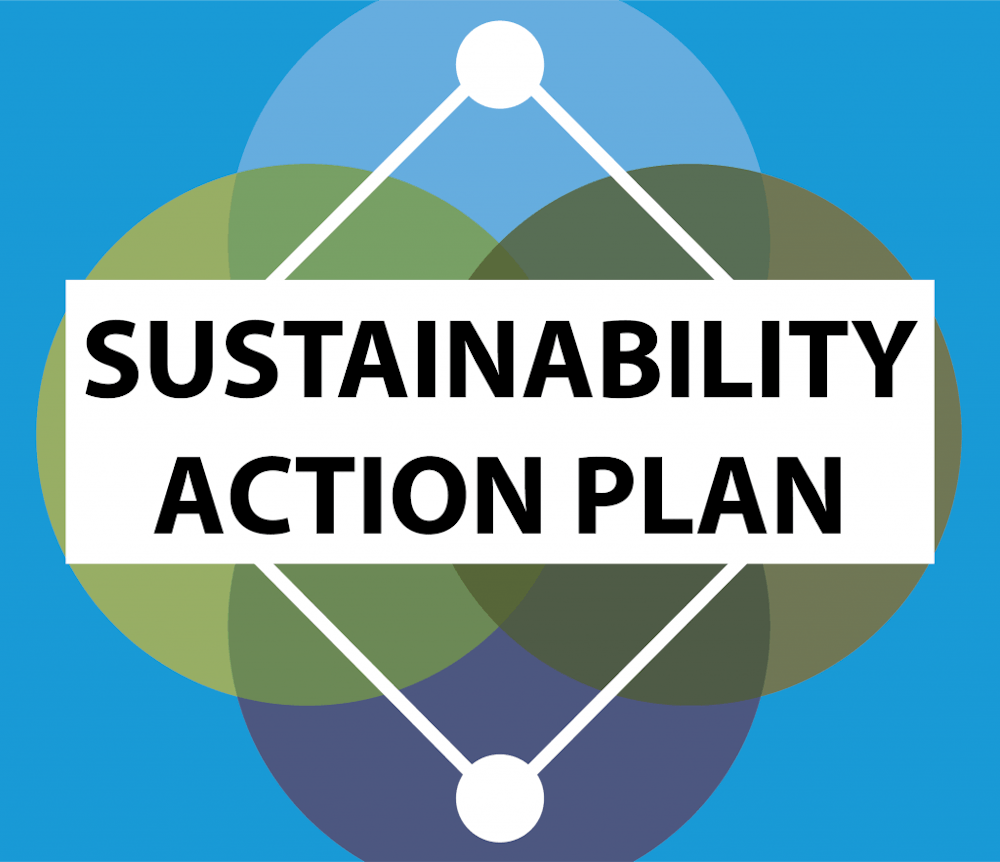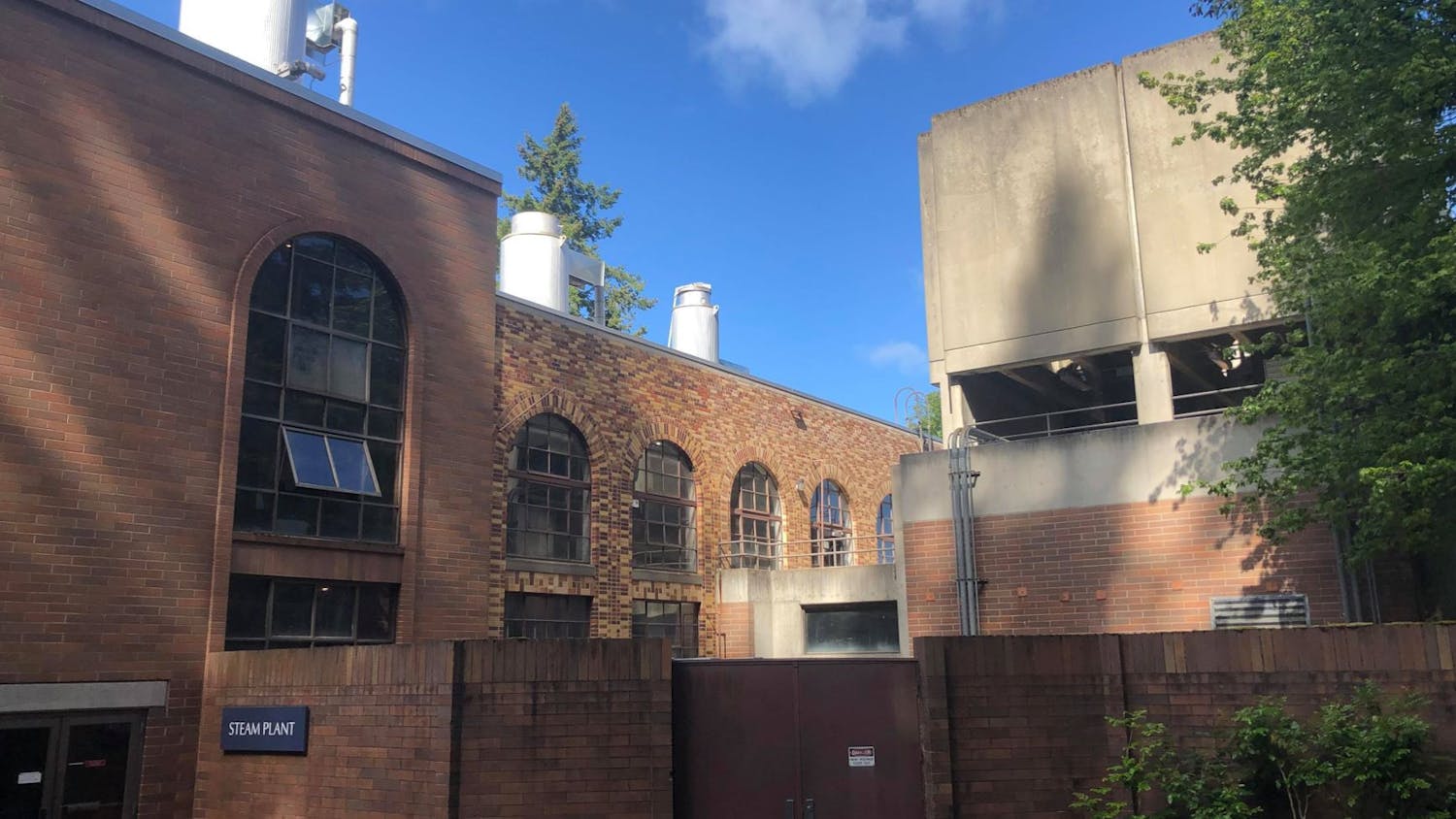Western Washington University’s Sustainability Action Plan was initiated by then-President Bruce Shepard in 2014 to identify goals and strategies to keep Western at the forefront of sustainable universities. It also served as a guide for the newly created Office of Sustainability.
The plan wasn’t written by one author but by a committee of different contributing experts from the community, and professors were made the leads of each chapter of the SAP. The plan took about two years to write and Western adopted it in 2017.
The Sustainability Advisory Committee was formed and 10 teams focused on different functions of the university. Teams included lead contributors Scott Dorough, Travis Tennessen, Grace Wang, Stephen Wadsworth, Chris Brueske, Craig Dunn, Pete Heilgeist, Eric Alexander, Carol Barry, Gwen Larnedwith John Furman and Steve Hollenhurst as co-chairs.
Participation was open on a voluntary basis to faculty and students. The teams included those most able to implement actions in order to move the plan forward.
The plan has 10 sub-sections to cover all university practices. This includes, but is not limited to; waste, transportation, academics, student life and dining services.
According to the SAP, the goals are to increase sustainability awareness, recruit and retain faculty and staff who focus on sustainability, support scholarships and teachings that promote sustainable practices and become a home to an Institute for Sustainability.
An Institute for Sustainability would be focused on creating a centralized location for sustainability teaching, research and engagement that will strengthen Western’s collective progress and success and promote collegiality.
The accomplishments of the plan are outlined annually and sent to Western’s Board of Trustees.
Some notable achievements are the creation of the Climate Leadership Certificate in 2020 to provide training and experience for students to apply a variety of skills to critical work in climate action and justice, the installation of Western’s first electric vehicle charging stations in 2019 with more scheduled to be installed, and reaching and surpassing the Real Food Challenge goal in 2019, said Johnathon Riopelle, the Sustainability, Equity, & Justice Fund Program manager for the Office of Sustainability.
While there have been successes over the years, such as the Institute for Energy studying energy-efficient projects and working towards the goals outlined by the SAP, the plan is mostly decentralized with no university-mandated work.
Since the SAP is primarily voluntary, some students feel there is more that could be done if there were a designated leader assigned to implement and facilitate certain parts of the plan.
“Someone was supposed to be hired in a permanent position, but some things fell through and they just weren’t and the university didn’t follow up on that,” said Natalie Sacker, vice president of the NetImpact club at Western. “They didn’t hire someone to be in charge of that.”
Working on the SAP and implementing the goals outlined are no small feat, and rather than hope someone will be willing to work towards these goals, Sacker believes it should be a permanent part of certain faculty job positions.
“If the vice presidents of the university were each charged with following through on the SAP, they would be able to work on parts of it and direct people below them and work with an appointed facilitator,” Sacker said. “If it were actually in their job description, which it could be, something might actually get done.”
Western has over 20 clubs dedicated to the protection and conservation of the environment and about half of them work in sustainability both on and off campus. Students for Renewable Energy is one of the main reasons Western has a Sustainability, Equity and Justice Fund, formerly known as the Green Energy Fund, Sacker said.
Since the 2015 Associated Students elections, Western continues the 100% renewable energy initiative combined with the grant program to fund innovative student-led sustainability projects.
“Students’ abilities to apply pressure and make change are important factors in sustainable practices,” Sacker said. “[Students for Renewable Energy] was a key lobbyist for the renewable energy initiatives back in 2005.”
Due to the pandemic, clubs have been meeting remotely for the past year.
“It’s difficult to enact any change on campus when clubs aren’t allowed on campus to begin with,” Sacker said.
Not only has COVID-19 slowed club progress for sustainable initiatives, but the SAP itself struggled to make progress.
“The COVID-19 pandemic has altered the functioning of the university and slowed some aspects of implementation, but in other ways, the past year has provided new opportunities to design and advance sustainability measures and academic offerings,” Riopelle said.
Although small victories have been claimed by the SAP, Lauren Wagner, AS senator for Western’s College of the Environment, wants to see more changes and more involvement from administration.
“Reviving the SAP and investing time and effort into more sustainable practices on campus isn’t about the sudden work that’s just now coming up. It’s an issue of catching up on things we were already supposed to be doing four years ago to ensure that the SAP stays relevant,” Wagner said.
Read more about the SAP here.
Hannah VanOis a senior communications major with a public relations minor and reporter for The Front. Her work focuses on campus news. When not reporting, Hannah loves spending time with her pets and being outside. You can reach her at hannahvano.thefront@gmail.com





